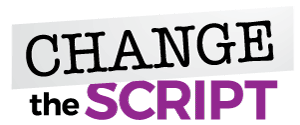
Resources to Prevent Substance Use and Support Recovery
There are clear steps we can all take to reduce the impact of substance use and decrease the risks of overdoses. Access free resources in our updated digital toolkit.
Keep Older Adults Safe from the Risks of Overdose
Older adults face unique risks when it comes to prescription medication. Whether you're an older adult yourself, a caregiver, or simply have older family members, you can take action to decrease the risks.
Many people need to take multiple medications as they get older. This creates many possible ways to mix up medications or doses. Also, other substances like alcohol can interact with prescription medications. Even over-the-counter vitamins can pose a risk.
Get Updates from DrugFreeCT.org
Get updates on new toolkids, materials, events, and more.
The Risks of Overdose Affect Everyone
- 7-10% increase in risk for an adverse drug event (ADE) with each medication you take
- 34.5% of adults aged 60-79 used at least 5 prescription drugs in the past 30 days
- 750 older adults hospitalized each day due to side effects from one or more medications
- 150,000 estimated premature deaths in the next 10 years from ADEs
- Lown Institute, Eliminating Medication Overload: A National Action Plan, 2020
- Hales CM, Servais J, Martin CB, Kohen D. Prescription drug use among adults aged 40–79 in the United States and Canada. NCHS Data Brief, no 347. Hyattsville, MD: National Center for Health Statistics. 2019.
Unique Risks that Older Adults Face
Older adults face unique challenges that raise their risks for overdose. Caregivers, loved ones, and health care professionals can help manage these risks.
- Cognitive issues that can make it harder to keep track of details
- Multiple chronic conditions that require multiple medications
- Older adults' bodies process medications differently and often slower
- Teeters, J.B., Lancaster, C.L., Brown, D.G., & Back, S.E. (2017). Substance use disorders in military veterans: prevalence and treatment challenges. Substance Abuse and Rehabilitation. 8, 69-77. doi:10.2147/SAR.S116720.
- National Institute on Aging, 2021
Make Sure Employees Know Where to Find Help
Provide Information that employees can use to find help if they need it.
- 2-1-1 Dial 2-1-1
- 988 Suicide & Crisis Lifeline Call or Text 988
- SAMHSA's National Helpline 1-800-662-HELP (4357)
- National Alliance on Mental Illness Helpline (800) 950-NAMI (6264)
- Connecticut Department of Mental Health and Addiction Services (800) 563-4086
Change the Script PSA
Watch and share this video to raise awareness for prevention best practices.
Evidence-Based Resources from Trusted Sources
In addition to the Change the Script toolkit materials, use these trusted sources to find more information on prevention and recovery.
- Lown Institute Data, perspective, and an action plan to mitigate excessive overprescribing in older adults.
- National Recovery Month An array of information and resources that help us all support people in recovery.
- National Institute on Aging In-depth overview on safe use of medicines for older adults.
- National Institute on Aging Evidence-based guidance on the dangers of polypharmacy.
- National Library of Medicine Helpful overview of risks and action steps to consider around taking multiple medications.
- NORA A free app from the CT Department of Public Health to prevent, treat, and report overdoses.
